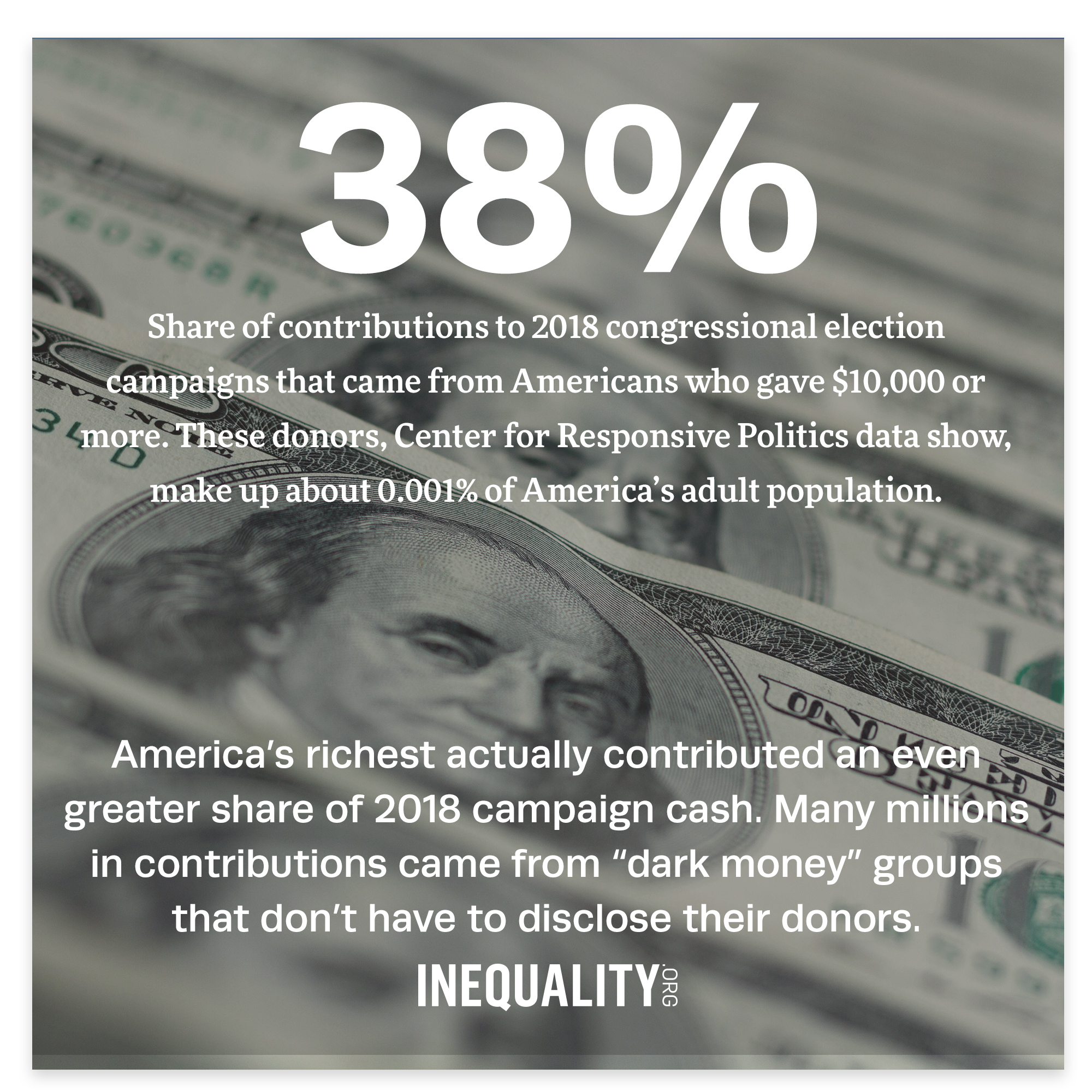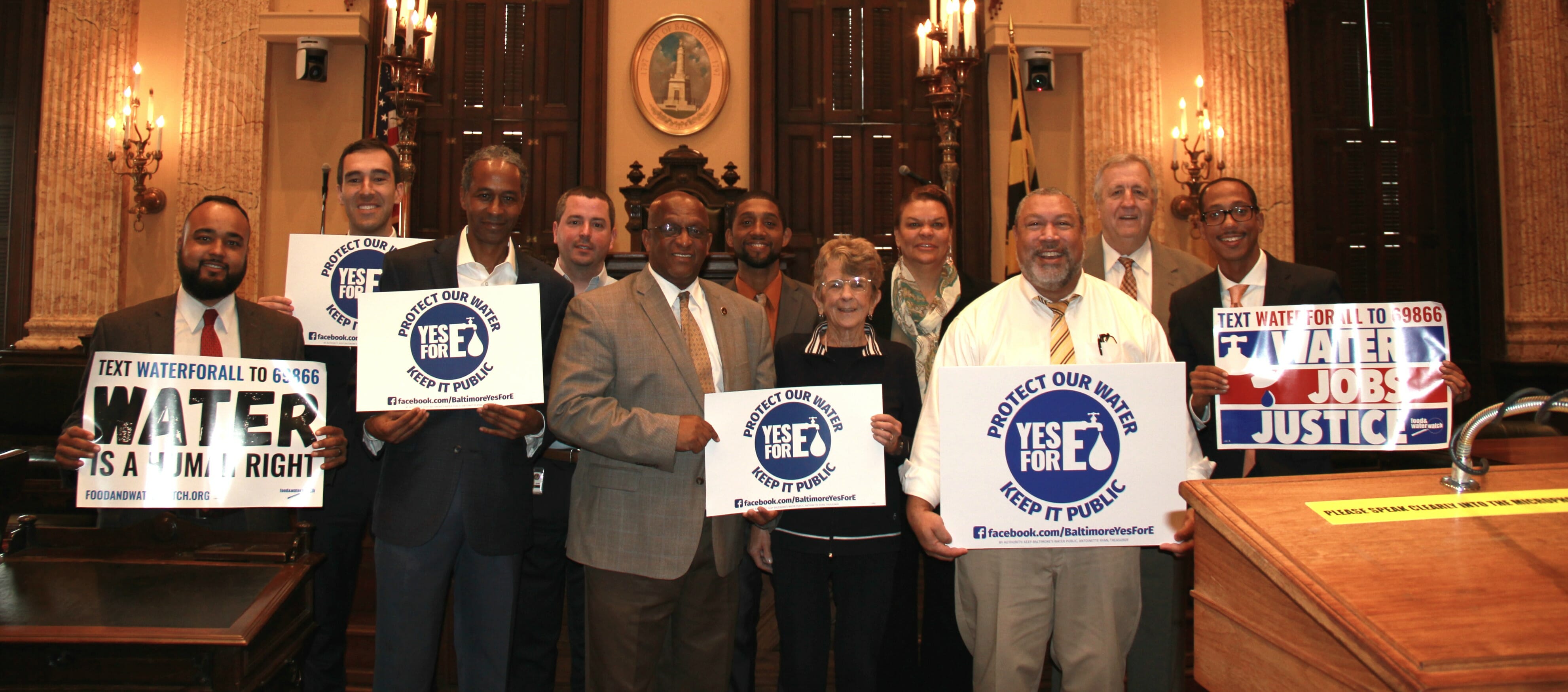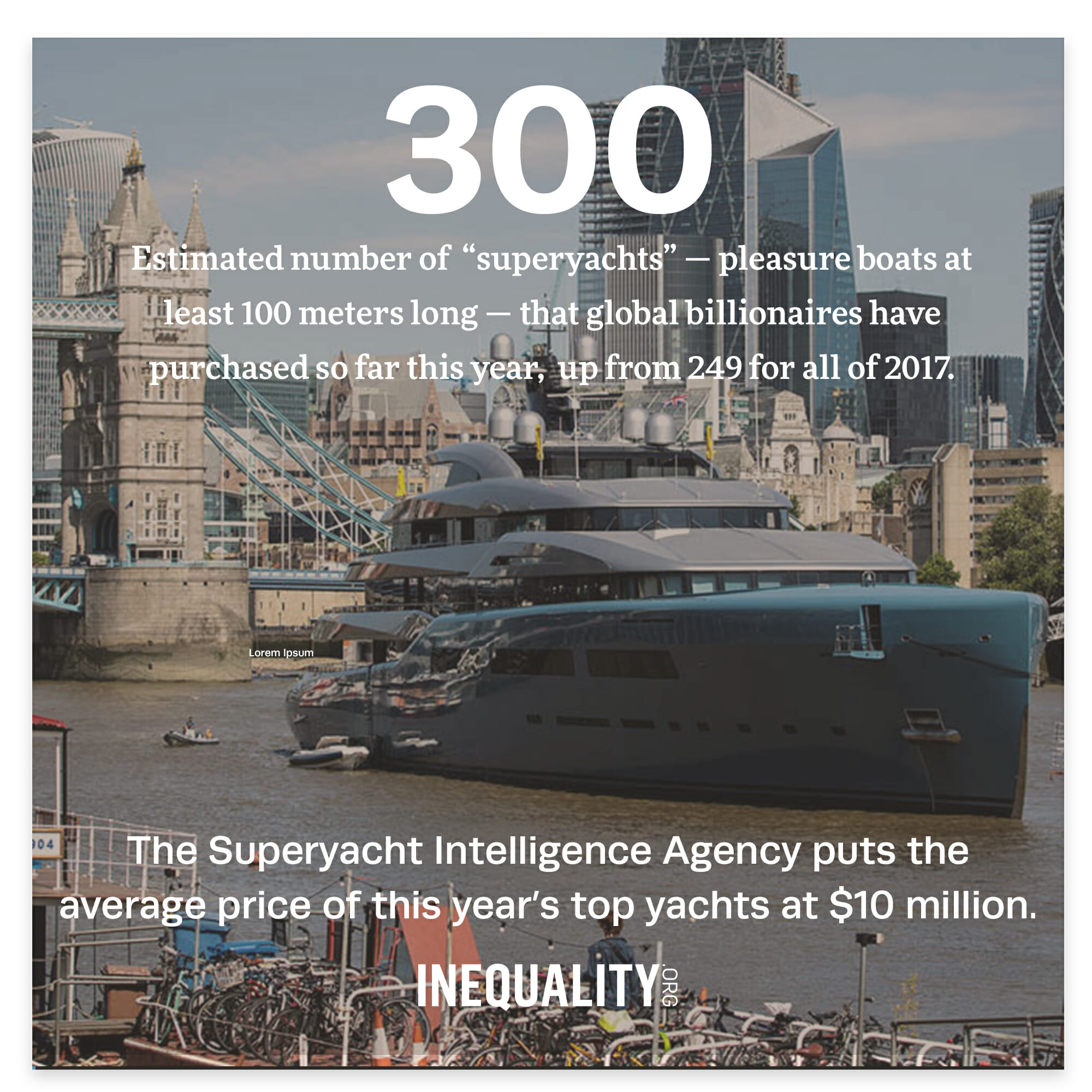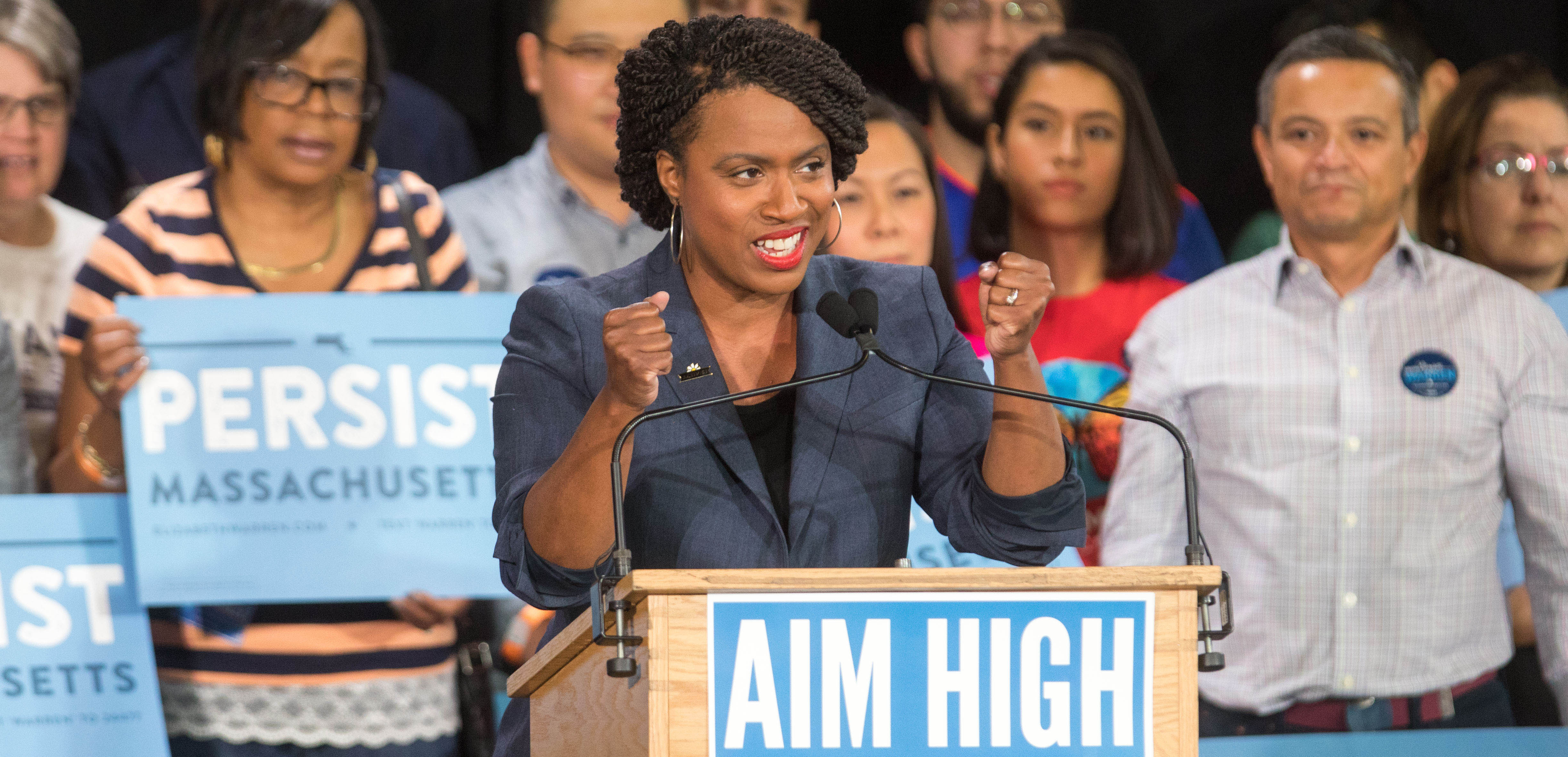To make any real progress on inequality, we’ll need sweeping policy changes along the lines of the big, bold ideas we’re profiling in this week’s issue.
|
THIS WEEK
|
Like most Americans, we’ve been parsing the results of last week’s inordinately expensive midterm elections. We’re looking, of course, for any and every avenue we can take to bridge our broad economic divides. We’ve written up online our biggest takeaways from the midterm voting, as well as what we expect to unfold in the coming weeks and months. One thing that strikes us as absolutely clear: To make any real progress on inequality, we’ll need sweeping policy changes along the lines of the big, bold ideas we’re profiling in this week’s issue.
Chuck Collins, for the Institute for Policy Studies Inequality.org team |
|
|
|
|
INEQUALITY BY THE NUMBERS
|
 |
|
|
|
|
|
|
FACES ON THE FRONTLINES
|
 |
Baltimore Voters Stand Up to Water Privatization
|
| Besides the high-profile legislative races up for grabs in last week’s election, voters also decided on a slew of state and local ballot measures. One encouraging vote saw the citizens of Baltimore amend their city’s charter to prohibit the privatization of the local water and sewer system. Private corporations, notes Food and Water Watch organizer Rianna Eckel, “have been circling Baltimore for years, ramping up efforts to pitch a privatization effort.” How did local groups stop these corporate vultures at the ballot box? Inequality.org co-editor Chuck Collins has more on the coalition campaign that has saved public water for Baltimore. |
|
|
|
|
WORDS OF WISDOM
|
 |
|
|
|
|
|
PETULANT PLUTOCRAT
OF THE WEEK
|
 |
| A Subsidized CEO Takes Aim at Media Impertinence |
| Those reporters have such nerve! Last month, a BBC reporter in London asked Jeff Fairburn, the CEO of Britain’s largest homebuilder and the nation’s highest-paid corporate chief exec, about the $98-million “performance” bonus the 52-year-old had pocketed earlier this year. A peeved Fairburn called the reporter’s question “really unfortunate” and abruptly walked out of the TV interview. Last week, the UK homebuilder Persimmon abruptly fired Fairburn, citing the public outrage over his windfall. Among the reasons for that outrage: The tax dollars of ordinary Brits pumped up Fairburn’s record bonus. Persimmon’s share price — and the size of Fairburn’s bonus — only started soaring after the government put in place a “help-to-buy” subsidy for homebuyers. About half the homes Persimmon sells take advantage of this subsidy. Lawmakers intended the subsidy, says Labour MP Rachel Reeves, to aid homeowners, “not reward executives with multi-million-pound payouts.” |
|
|
|
|
GREED AT A GLANCE
|
 |
|
|
|
|
|
|
TOO MUCH
|
 |
| The House Has Gone Democratic. Can It Go Bold? |
| The various congressional majorities Democrats have won over recent decades have typically shied away from anything that smacks of big and bold. The reforms these majorities have championed have often been overly cautious — and deeply compromised by a fear of annoying potential Democratic Party deep-pocket donors. That fear may be easing. A number of leading Democrats with eyes on the 2020 presidential election — and the party’s growing progressive activist base — have recently advanced proposals that could help spark real change in who owns and runs America. Inequality.org co-editor Sam Pizzigati, author of The Case for a Maximum Wage, has more. |
|
|
|
|
|
|
MUST READS
|
This week on Inequality.org
Oscar Reyes, Want to Save the Climate? Break Up the Big Banks. Despite regularly claiming new commitments to “green finance,” big banks continue to lend billions to the fossil fuel industry every year.
Sarah Anderson, 6 Women of Color Who Campaigned for Congress on Inequality and Won. These trailblazers are heading to Washington to advance a bold social and economic justice agenda, with a strong focus on reversing inequality.
Negin Owliaei, 2018 Midterm Elections: A Ballot Initiative Breakdown. Voters in several states passed measures to protect and expand the rights of people across the country.
Chuck Collins, Baltimore Voters Stand Up to Water Privatization. In a rare instance of progressive preemption, the city’s voters told private water corporations to leave them alone.
Elsewhere on the web
Josh Hoxie, How Aristocracies Are Born, OtherWords. Our country is becoming a society run by the children of billionaires.
Paul Pinsky, Five Lessons for the New Activist-Lawmaker Wave, Nation. A veteran left state lawmaker reflects on lessons learned from over 30 years fighting to achieve a more equal America.
Stephanie Kelton, The Democrats’ Options for Repealing the Trump Tax Cut, Bloomberg. The party needs to offer new solutions.
David Dodwell, The world’s paying too high a price for inequality, South China Morning Post. What we’ve paid so far for inequality will be just a down payment on what we will have to pay if we do not do something — and quickly.
Stephanie Flanders, The New Economics of Inequality Shaping Policy, Bloomberg. If the relative distribution of U.S. earnings in 2015 had been the same as in 1973, average U.S. worker compensation at the end of 2015 would have been about a third higher.
Ellen Barry, In Finland, Every Citizen’s Taxable Income Is Revealed, New York Times. This disclosure, most Finns believe, has helped the country resist the global trend toward growing inequality.
Shayanne Gal and Hilary Brueck, Canada is richer than the US, according to a new wealth ranking — in fact, the US doesn’t even make the top 10, Business Insider. The top-heavy distribution of wealth in the United States is weighing average Americans down. |
|
|
|
|